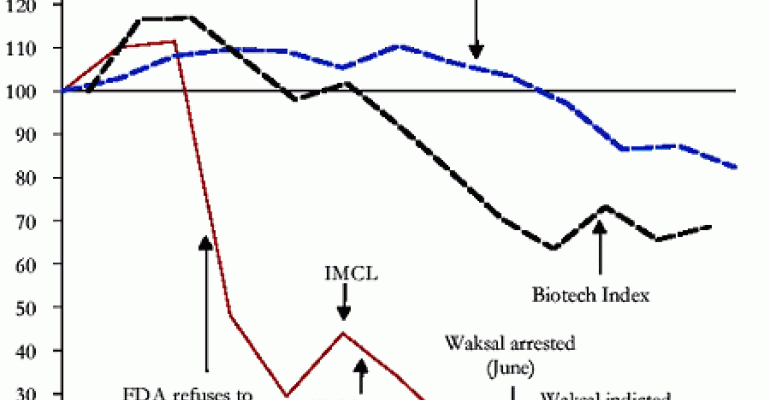 So the Feds are investigating
mutual fund managers and others for insider trading. What is insider trading anyway? Let's face it: Getting info first, then successfully analyzing it quickly and acting on information is how markets work. (Here is one
definition of insider trading.) But it truly is a foggy area, if you ask me. I know, you think I am insane, but read on.
So the Feds are investigating
mutual fund managers and others for insider trading. What is insider trading anyway? Let's face it: Getting info first, then successfully analyzing it quickly and acting on information is how markets work. (Here is one
definition of insider trading.) But it truly is a foggy area, if you ask me. I know, you think I am insane, but read on.
I agree that markets have to be "fair," and that it's paramount that the millions of investors feel like they are not getting ripped off; that would cater capital markets, and, by extension, the world's economy. That said, one wonders if over-zelous prosecutors don't push it a little far. Martha Stewart was a prime scalp. She was thrown in jail not for insider trading. The feds couldn't prove that. Instead, they got her on "obstructing justice." That's right, they nailed her for alledly trying to cover up a crime they could not prove she committed. All it did was malign the woman and destroy $4.9 billion in shareholder wealth.
The libertarian Cato Institute has much to say on the subject. Doug Bandow of Cato writes: "Few people ever ask the most basic question: Why is insider trading a crime?" He notes that, "The law bizarrely affects only one-half of the trading equation. People make money by not trading as well as trading. But it is virtually impossible to prove that someone chose not to buy or sell stock because of a legally improper tip. So hundreds, maybe thousands, of people get away with insider 'not trading' every year. Yet it isn't obvious that the operation of the financial markets is impaired in any way.
"If there is a problem in the market about insider trading, it's that the market is biased by imposing criminal sanctions on only one side of the transaction. Inside information should lead roughly equal numbers of people to buy, sell and do nothing. The criminal law encourages people to do nothing. Whatever the impact, it isn't likely to be more efficient markets.
"Insider-trading laws deny markets important information. The recent financial crisis was caused in large part by inadequate information. People didn't know the true value of mortgage-backed securities, leading to a financial house of cards that crashed down on federal agencies, investment houses, commercial banks and average investors.
"The distinction between public and non-public information is legally decisive but economically unimportant. Perversely, the insider-trading laws seek to prevent people from trading on the most accurate and up-to-date information. The law seeks to force everyone to make today's decisions based on yesterday's data. It's a genuinely stupid thing to do.
"The only plausible argument for ensuring that everyone trades on inadequate and outdated information is 'fairness.' The Securities and Exchange Commission's Enforcement Director, Robert Khuzami, says insider-trading prosecutions are aimed at restoring 'the level playing field that is fundamental to our capital markets.'"

